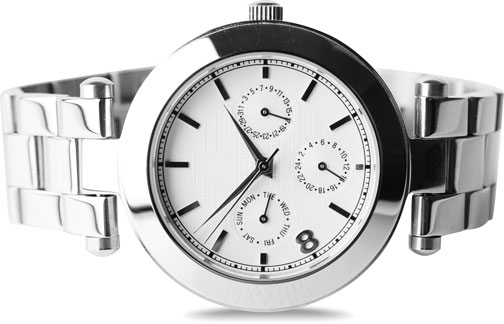I am generally a punctual person, which I attribute to the fact that I wear a watch. But according to Mark F. Bernstein ’83’s story about “ageism” in Silicon Valley (page 24), my utilitarian jewelry conveys something else: my age.
Writing about the youth culture so prevalent at many high-tech companies, Bernstein noted two wardrobe tips given to job applicants who have passed the advanced age of, say, 30: No watches. And definitely no pleated pants.
Many of Princeton’s tech giants are, I can say proudly, middle-aged. After 20-somethings Sergey Brin and Larry Page hired Eric Schmidt ’76, then 46, as chief executive at Google, the three were interviewed on PBS by Charlie Rose. Rose asked the co-founders why they hired Schmidt, a veteran of the software firm Novell.
“Earlier, when we were in our teens and so forth, you don’t want the parents around. But now we’re getting closer to 30, and our search engine really serves the world,” Brin said. “It’s a huge responsibility, and if you can bring in experience to help out, that’s pretty reasonable.”
There’s probably a little more to it. In their 2014 book, How Google Works, Schmidt and co-author Jonathan Rosenberg wrote that the young founders hired Schmidt for his “track record as a technologist ... and geek cred as an alum of Bell Labs.” Technical expertise and creativity counted, and those attributes are not limited to the young.
To be sure, Schmidt looked like the odd man out on that Charlie Rose appearance — Page and Brin in their T-shirts and Schmidt in his neat, button-down shirt. It’s impossible to see underneath the cuff, but I would like to think he was wearing a watch, and not relying on a phone in his pocket. On top of everything the Google founders had wanted in their new hire, I sensed that he always would be on time.













No responses yet